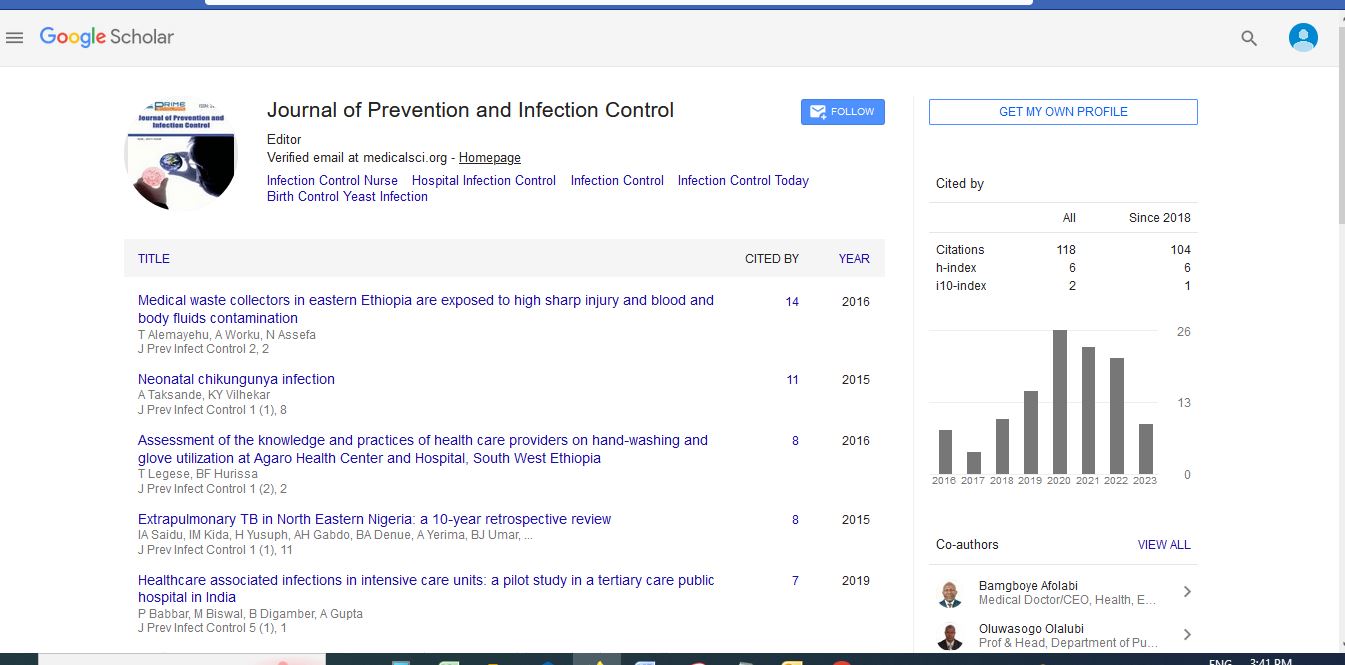Short Communication - (2023) Volume 9, Issue 2
Nasocomical Infection: A Comprehensive Analysis of Hospital-Acquired Laughter
Arukul Ristava*
Department of Science, University of California, USA
*Correspondence:
Arukul Ristava,
Department of Science, University of California,
USA,
Email:
Received: 31-May-2023, Manuscript No. IPJPIC-23-17286;
Editor assigned: 02-Jun-2023, Pre QC No. IPJPIC-23-17286 (PQ);
Reviewed: 16-Jun-2023, QC No. IPJPIC-23-17286;
Revised: 21-Jun-2023, Manuscript No. IPJPIC-23-17286 (R);
Published:
28-Jun-2023, DOI: 10.36648/2471-9668-9.2.20
Introduction
In the realm of medical care, where seriousness and dedication
to healing prevail, an unexpected phenomenon has gained recognition-
nasocomical infection. While hospitals are primarily designed
to treat ailments, they also inadvertently serve as breeding
grounds for laughter. This seemingly paradoxical concept is
an intriguing aspect of the healthcare environment that warrants
exploration. In this article, we delve into the world of nasocomical
infection, understanding its origins, manifestations, impact
on patient care, psychological implications, and strategies to harness
its potential for therapeutic benefits.
Description
The term refers to the contagion of laughter within hospital settings,
where the seriousness of medical conditions meets the levity
of humor. This phenomenon is characterized by patients, medical
staff, and visitors engaging in bouts of spontaneous laughter,
often in response to the unusual or absurd circumstances that
can arise within healthcare facilities. Manifestations of nasocomical
infection are diverse, ranging from humorous anecdotes
shared by patients, medical mishaps with a touch of irony, to
light-hearted interactions among healthcare professionals. These
instances can lead to a shared sense of amusement, providing
a brief respite from the often-stressful hospital environment.
Recognizing the therapeutic potential of nasocomical infection,
some medical facilities are deliberately incorporating humor into
their practices. Clown therapy programs, for instance, involve
professional clowns engaging with patients to elicit laughter.
These interactions have shown to alleviate anxiety, enhance social
engagement, and even reduce the need for pain medication.
Additionally, humor-based interventions, such as comedy shows
or humorous art installations, are being employed to create a
more cheerful hospital environment. Research indicates that
such initiatives can positively impact patient recovery rates and
reduce the length of hospital stays [1-5].
Conclusion
While the primary goal of any healthcare facility is to ensure
patient well-being, the presence of nasocomical infection can
influence the overall experience. Humor can act as a coping
mechanism, enabling patients to better manage their stress and
anxiety associated with medical treatments. Patients who find
themselves chuckling in the midst of discomfort may experience
reduced pain perception and improved psychological well-being.
For medical professionals, humor can serve as a tool to establish
rapport and alleviate the tension between patients and caregivers.
This interpersonal connection can foster a sense of trust and
ease, ultimately enhancing patient satisfaction and treatment
outcomes. Laughter, a cornerstone of nasocomical infection, has
long been recognized for its positive impact on mental health. It
triggers the release of endorphins, the body’s natural painkillers
and mood enhancers, thereby promoting a sense of well-being.
Amid the sterile hospital environment, humor can serve as a beacon
of warmth, fostering a sense of normalcy and levity. Moreover,
the psychological benefits of nasocomical infection extend
beyond the patient’s realm. Healthcare professionals often face
high levels of stress due to the demanding nature of their work.
Encouraging humor within the workplace can serve as a buffer
against burnout, promoting camaraderie and emotional support
among team members. Additionally, humor-based interventions,
such as comedy shows or humorous art installations, are being
employed to create a more cheerful hospital environment. Research
indicates that such initiatives can positively impact patient
recovery rates and reduce the length of hospital stays.
Acknowledgement
None.
Conflict Of Interest
None.
References
- Kadar N (2019) Rediscovering ignaz philipp semmelweis (1818-1865). Am J Obstet Gynecol 220(1): 26-39.
[Crossref] [Google Scholar]
- Walford NS (2020) Demographic and social context of deaths during the 1854 cholera outbreak in Soho, London: A reappraisal of Dr John Snow's investigation. Health Pla 65: 102402.
[Crossref] [Google Scholar]
- Haley RW, Culver DH, White JW, Morgan WM, Emori TG, et al. (1985) The efficacy of infection surveillance and control programs in preventing nosocomial infections in US hospitals. Am J Epidemiol 121(2): 182-205.
[Crossref] [Google Scholar]
- Eickhoff TC, Eickhoff TC (1993) Hospital infection control: Coming of age. Am J Infect Control 21(3): 115-6.
[Crossref] [Google Scholar]
- Gordts B, Gordts B (2005) Models for the organisation of hospital infection control and prevention programmes. Clin Microbiol Infect 1: 19-23.
[Crossref] [Google Scholar]
Citation: Ristava A (2023) Nasocomical Infection: A Comprehensive Analysis of Hospital-Acquired Laughter. 9:20.
Copyright: © 2023 Ristava D. This is an open-access article distributed under the terms of the Creative Commons Attribution
License, which permits unrestricted use, distribution, and reproduction in any medium, provided the original author and source
are credited.

